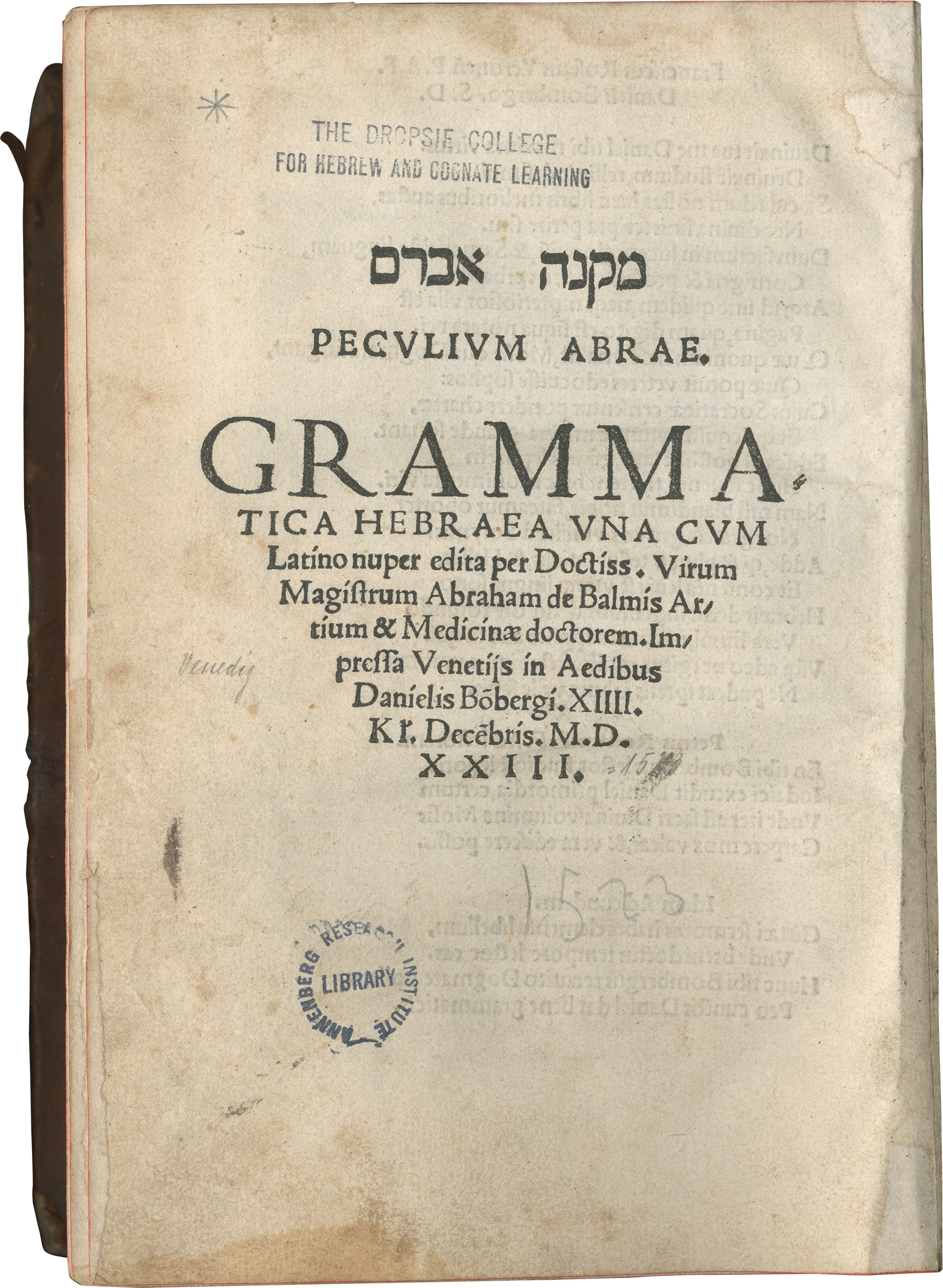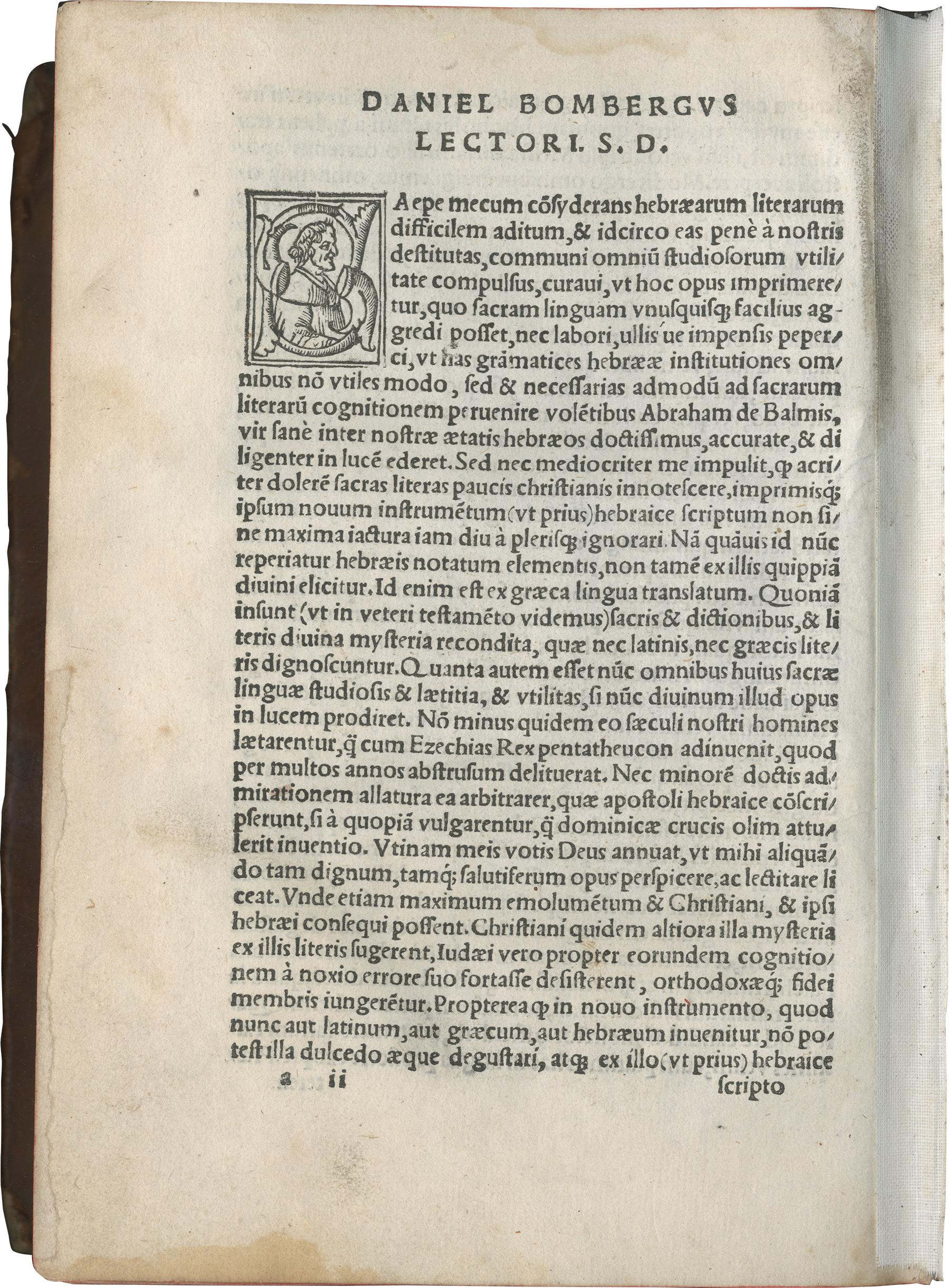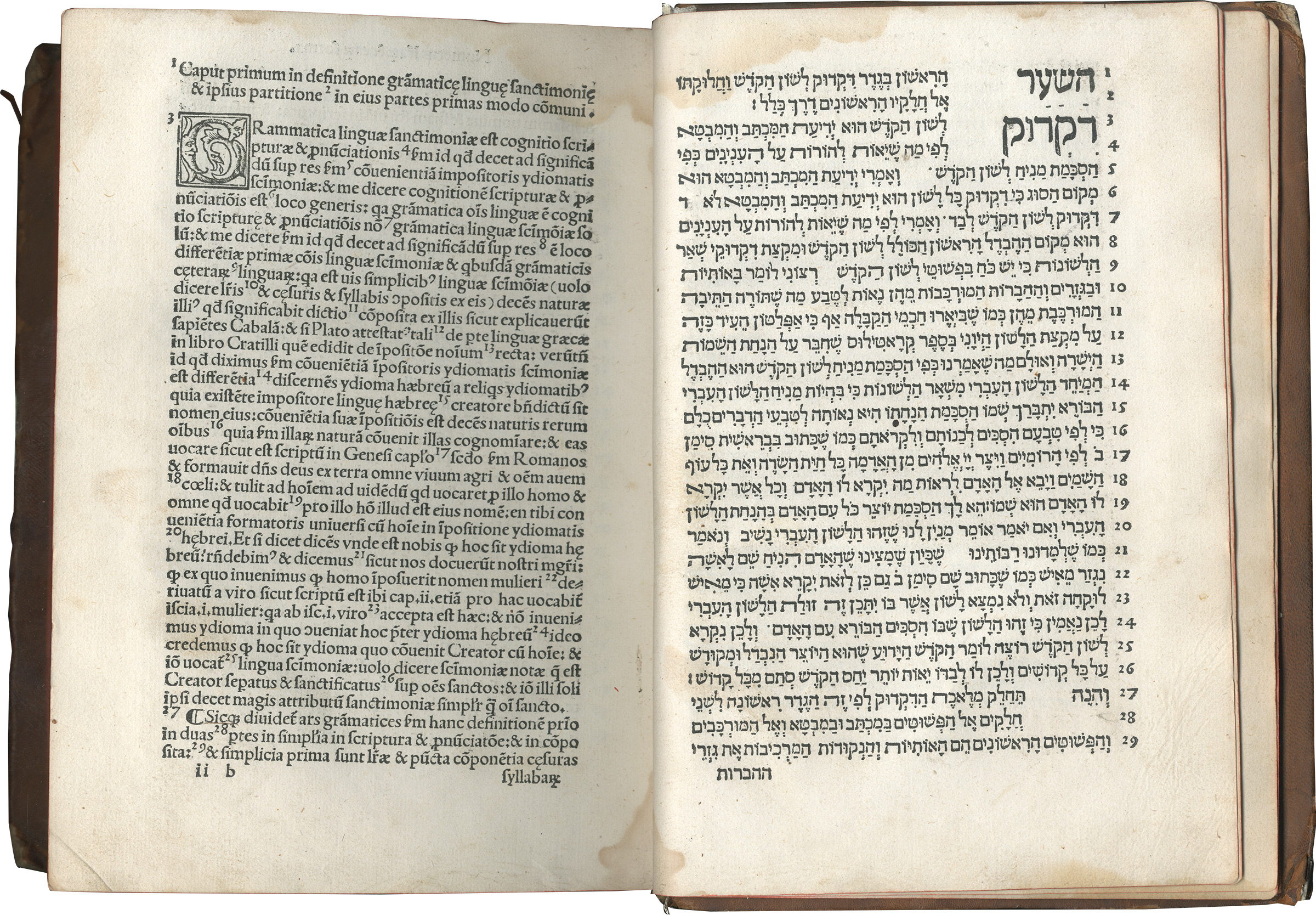"There are divine mysteries . . . in the words and the letters of the Holy text, mysteries that cannot be grasped on the basis of the Latin or Greek [versions of the Bible]." By these introductory words, Daniel Bomberg, the publisher of Abraham De Balmes' Hebrew grammar Mikneh Avram (The Possession of Abram, Venice, 1523) explains why he decided to commit himself to print a new Hebrew grammar targeted to non-Jews. De Balmes, a talented physician, philosopher, and kabbalist (born in Southern Italy c. 1460, died in Venice c. 1523), is mainly known for his translations from Hebrew into Latin of the Averroistic corpus, sponsored by cardinal Domenico Grimani.
De Balmes' Mikneh Avram was the first Hebrew grammar addressed by a Jewish scholar to the non-Jewish audience of humanists who were eager to learn Hebrew and the Jewish Kabbalah. The Hebrew text is accompanied by a Latin translation carried out by De Balmes and completed, after the author's death, by Kalonymos ben David Kalonymos. The interest of this edition, which had a wide circulation, resides in the special emphasis attributed to the syntax of Hebrew as well as in the combined use of Aristotelian logic and Kabbalistic allusions, a speculative pattern that characterized De Balmes' intellectual research.


